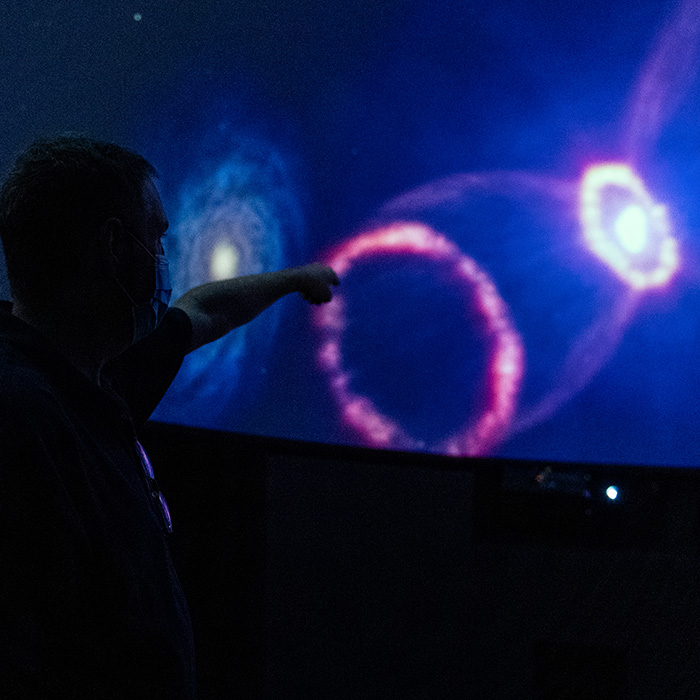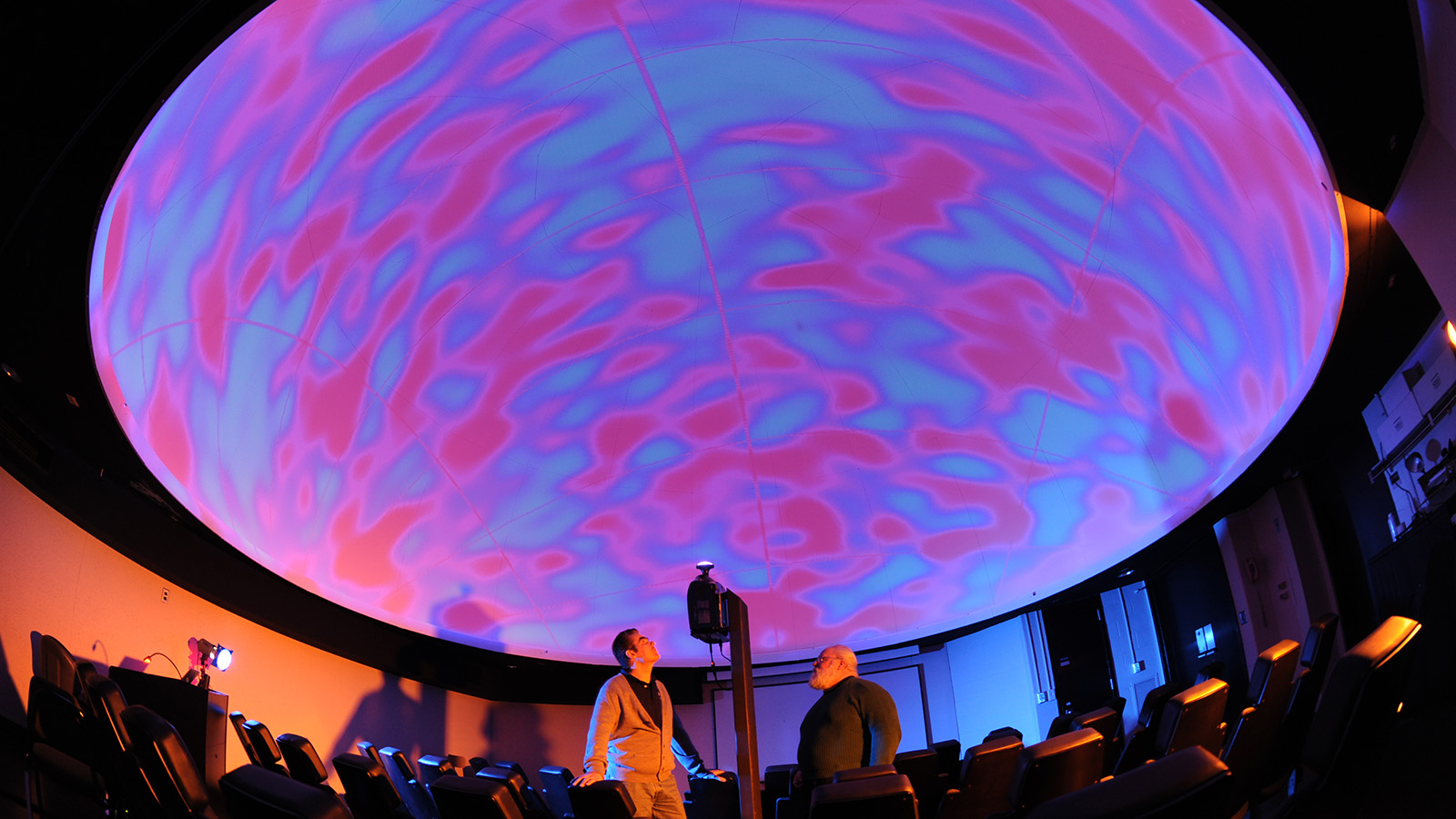Helping students reach for the stars
Christian Ready inspires the next wave of astronomers
Towson University lecturer Christian Ready fell in love with outer space at a young age.
The idea of becoming an astronomer didn’t begin with classes or books. It started when his parents sat him down in front of a television, where he admits he was raised on reruns of the classic television show Star Trek.
I realized I could study the universe right from planet Earth, and that’s what I’ve managed to do in some capacity since I was a teenager.
Christian Ready
“I loved the idea of getting in a ship and exploring the universe and seeking out strange new worlds,” Ready says. “Of course, I couldn’t just hop on the Starship Enterprise, but I could do the next best thing. I realized I could study the universe right from planet Earth, and that’s what I’ve managed to do in some capacity since I was a teenager.”
Ready got his first astronomy job at 13 when he would ride his bicycle to Swarthmore College in Swarthmore, Pennsylvania, which was about a mile from where he grew up.
“I knocked on the door and asked if I could help out in some way. I can’t believe it, but the professor who answered the door said, ‘Sure, come back tomorrow,’” Ready says. “Working for him, I learned how to measure the distances to stars and figure out how far away they are, how they move across the sky, and really just got my hands dirty with professional astronomy.
“And it’s still what I’m doing today.”
My greatest reward is to know I played some small role in helping someone realize the greater world around them, which I think is the role any professor, teacher or educator could ever hope for.
Christian Ready
Ready lectures in TU’s Department of Physics, Astronomy & Geosciences. He is also the director of the university’s planetarium.
He hosts a planetarium show for the Baltimore County community every third Friday evening of the month that lasts 30 to 45 minutes.
Seating is on a first-come, first-served basis, except for the designated ADA/wheelchair seating. The addition of extra showings accommodates overflow audiences.
For Ready, his classes and the public show allowed him to explore why he got into astronomy in the first place. It’s also fun for him to hear his students and adults in the audience react to each image shown on the dome.
“I think that's one of the great things about this field: It's all about scratching that itch of our innate curiosity,” Ready says. “Somewhere along the line, when we grow up, we're told not to be curious anymore or to stop asking all those silly questions. In science, that's exactly what we do. We ask the dumbest questions because we're trying to understand how the universe works.”

Ready has also taken his talents online. He’s created a very popular YouTube channel called Launch Pad Astronomy. There Ready discusses the latest news and innovations in his field. He also invites guests from NASA and the Space Telescope Science Institute to have conversations about their professions.
“It’s another outlet that lets me share the story of the universe with the public,” Ready says. “I love making videos. I love the creative process. I've always tried to make even my classroom presentations as visually interesting and engaging as I can. And the YouTube experience is just another way of doing that.”
Even though he’s had to make do with NASA and the Space Telescope Science Institute rather than boldly going with Captain Kirk and the members of the Starship Enterprise, Ready is delighted with where his career path has taken him.
“I can't believe they let me do this, to be honest,” he laughs. “My greatest reward is to know I played some small role in helping someone realize the greater world around them, which I think is the role any professor, teacher or educator could ever hope for.”
Christian Ready on how the planetarium works

“This is a brand-new planetarium built by Spitz Systems in Chadds Ford, Pennsylvania. They supplied us with this beautiful, 24-foot dome that's been tilted a little bit so people don't have to crane their necks too much to look directly upward.
The SciDome presentation system projects simulations from StarryNight, The Layered Earth, Zygote Body and full-dome video through two 4K Canon projectors. The state-of-the-art NanoSeam dome ensures an immersive, 4K-by-4K ultra-high-definition image. The quadraphonic sound system allows for an extra dimension of experience as you tour the cosmos.”